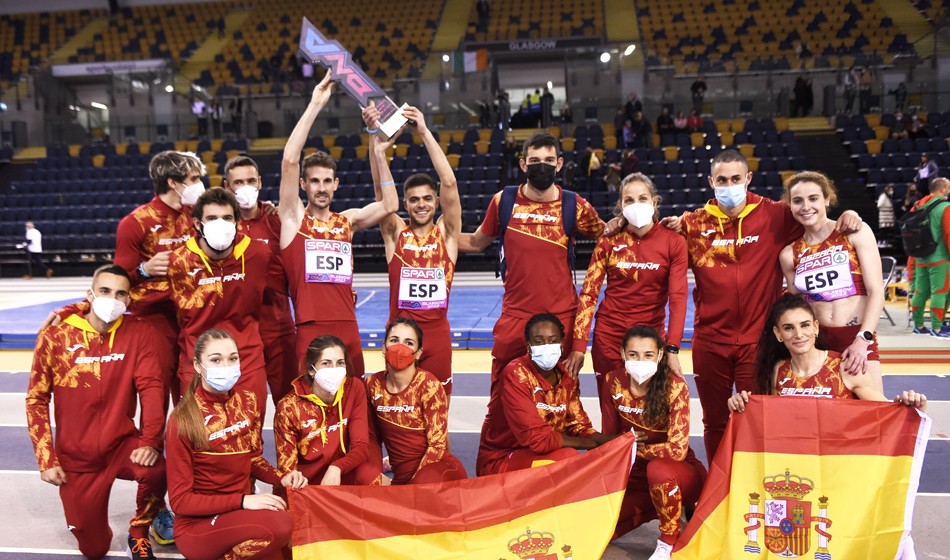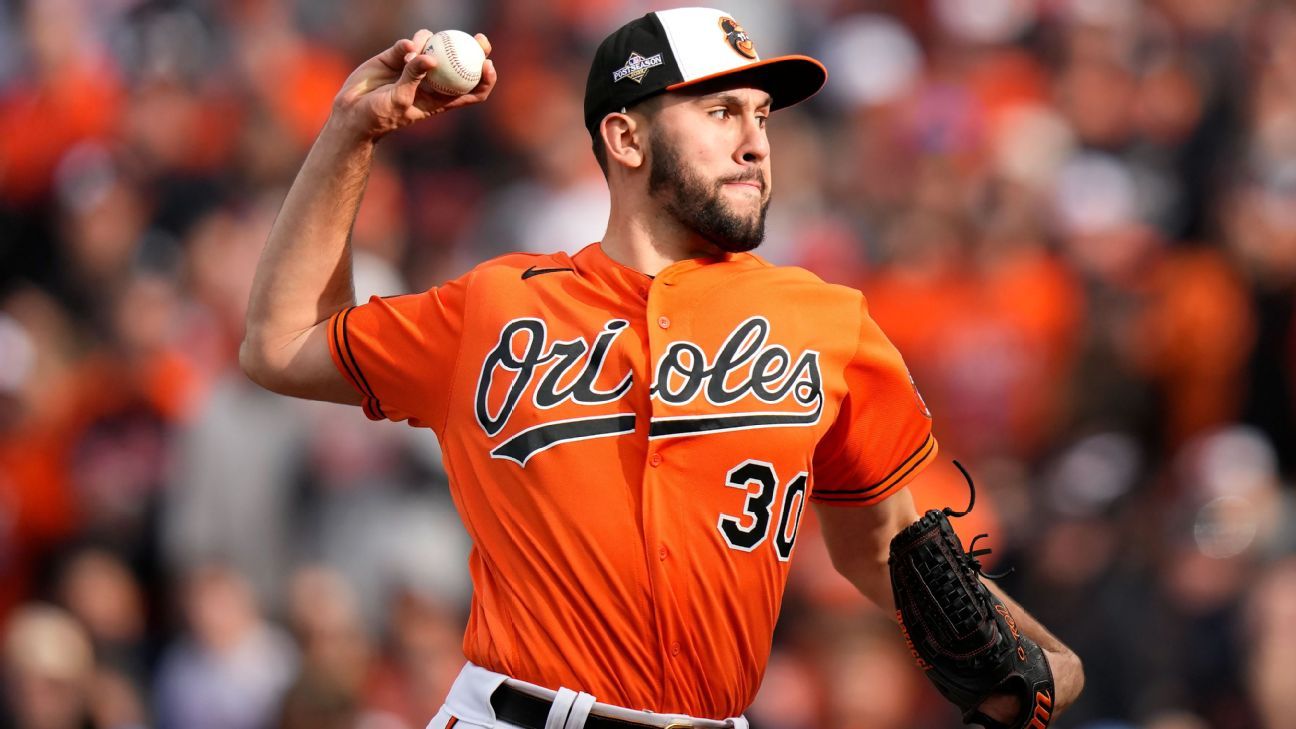
It wasn’t perfect, but fast-paced event shows potential on a packed afternoon in Glasgow
At a time when athletics is having to work hard to reach new audiences and maintain its relevance, innovations such as the Dynamic New Athletics (DNA) meeting which took place in Glasgow on Saturday (February 5) are to be applauded.
First launched at the 2019 European Games in Minsk, the fast-paced and compact format which is the brainchild of European Athletics saw its second coming at the Emirates Arena and although it didn’t entirely hit the mark in every aspect, this pilot is showing potential.
Spain were the outright winners of the six-way international battle which also included second-placed England and third-placed Ireland, as well as Wales, Portugal and Scotland.
The hosts had been due to field Olympic 1500m silver medallist Laura Muir among their ranks, but her late withdrawal through injury was a clear blow to the aim of raising the event’s profile. It goes without saying that more star names in future would be a huge help.
Yet athletics is well supported on and off the track in Scotland and there was still a crowd of around 2000 in attendance to watch the action unfold.
There were 10 events across track and field which all brought points. First place got 12, second 10, third eight, fourth six, fifth four and two for sixth. These points all decided the handicap and the running order for the 11th and final event of the day – the Hunt – the winner of which would take all.
Spain were the dominant force right from the off, winning the mixed 4x400m relay from England, and some of the track events translated particularly well.
The field events were a little more difficult to follow, however, with head-to-head clashes an interesting idea but the format needing just a little bit too much explanation.
Yet the athletes seemed to enjoy themselves. Olympian Scott Lincoln took full points in his shot put battle for first place with Spain’s Carlos Tobalina, the Englishman being the only competitor to clear 20m as he threw 20.13m to secure victory. As with a number of the other events, tactics came into play.
Scott Lincoln (Mark Shearman)
“Going into it, I was thinking more selfishly [looking to throw as far as possible],” said Lincoln. “But as soon as you get in the circle, it completely changes in your mind and you just think about getting the safe throw out there to win the points.”
Of the format, he added: “It was really exciting. It was bizarre to have the whole crowd watching a throws event. It was really good in that respect and all the other field events got the same showcase as the track did.”
One of the loudest cheers of the day came for a more traditional discipline, the 800m, as Scotland’s Jenny Selman enjoyed a day to remember. Just prior to the DNA meeting getting underway, she had run her way to an 800m World Indoor Championships and Commonwealth qualifying time with a personal best of 2:00.72.
She had been due to run in the Hunt but the withdrawal of Muir resulted in a rejig of her duties for the day and just 70 minutes later Selman found herself on the startline again.
Her performance raised the roof as she chased down and pipped Ireland’s Louise Shanahan right on the line. Selman clocked 2:04.73 ahead of Shanahan’s 2:04.82.
A change to her training group in Edinburgh is now paying dividends for Selman and she said: “The 800m is such a tough event. I realise that even though I’ve got the qualifying standard it doesn’t necessarily mean I’m going to go. I’m just happy to have got that time to put that marker down and put myself in the mix. If I go, that would be amazing but, if not, I’m still really happy.
“It’s really good to have an international opportunity [like this]. When I was coming down the home straight it felt like everyone was roaring at me, which really helps.”
Jenny Selman (Mark Shearman)
One of the events which truly fitted the fast-paced, high-octane mission of this meeting was the 2x2x200m relay. Teams of two athletes – one male and one female – alternated legs of 200m, with each running two. The English duo of Thomas Somers and Amy Hillyard hit their stride with the format best, storming to victory in 1:39.71, ahead of Spain (1:41.50) and Scotland (1:42.40).
The twist with the men’s high jump was that athletes and coaches combined to choose the height they attempted in the head-to-head clashes, with the highest successful jump (just one attempt for each athlete) winning each contest.
If neither athlete cleared their chosen bar, the points were shared. And so it was that Ireland’s Ciaran Connolly and Spaniard Xesc Tresens both scored 11 points for their respective teams in the jump-off for first and second place. Connolly, who cleared 2.05m in the qualifying rounds, failed to go over 2.06m in the final, while Tresens missed his shot at 2.10m.
In the women’s 60m, Maria Isabel Pérez of Spain took full points in a winning time of 7.22, from Ireland’s Molly Scott (7.33) and Scotland’s Alisha Rees (7.36). The men’s contest saw British indoor champion Andrew Robertson grab victory for England in 6.62 from Welshman Jeremiah Azu (6.64) and Ireland’s Israel Olatunde (6.68).
Portugal’s Evelise Veiga took the women’s long jump with her leap of 6.50m, some 35cm further than Welsh runner-up Rebecca Chapman’s 6.15m. Ruby Millet of Ireland produced a PB of 6.40m for third.
Enrique Llopis won the men’s 60m hurdles in 7.67 ahead of a season’s best 7.82 from Portugal’s João Vitor De Oliveira and England’s Cameron Fillery’s clocking of 7.91. The women’s race also went to Spain thanks to Teresa Errandonea’s run of 8.22, which brought her home ahead of personal bests from Ireland’s Kate Doherty (8.25) and Portugal’s Catarina Querios (8.39).
All of this left Spain with a healthy 20-point lead going into the Hunt. This translated into an advantage of 6.70 seconds before their nearest challengers, Ireland and England, could set off in pursuit.
The mixed relay format of the race began with a female 800m leg handing over to a men’s 600m, then a women’s 400m and men’s 200m. The format would work much better with a closer handicap contest but Spain got the job done well and their winning time of 4:38.46 brought them home almost 11 seconds clear of England.
Joy for @atletismoRFEA as they hold the @EuroAthletics DNA trophy ?#AthleticsWithAttitude pic.twitter.com/CRO3M2HUNF
— AW (@AthleticsWeekly) February 5, 2022
The Spaniards definitely enjoyed their celebrations and there was plenty of buzz with an infield packed full of athletes cheering their team-mates. Now it remains to be seen how much noise DNA can make in the future.
Click here for event results.















 Phone: (800) 737. 6040
Phone: (800) 737. 6040 Fax: (800) 825 5558
Fax: (800) 825 5558 Website:
Website:  Email:
Email: 






